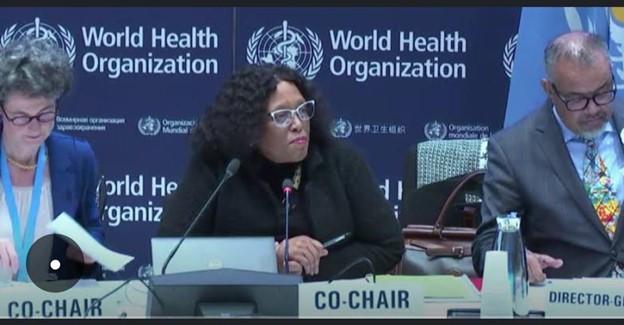
By Sylvia Mesesi
Leading these negotiations is the International Negotiating Body (INB), a group tasked with drafting the agreement and managing discussions between countries. Essentially, the INB acts as the bridge between WHO’s leadership and the member states, helping to shape the details of this treaty.
Recently, the INB held its 12th meeting (INB 12), and here’s what happened.
INB 12
The most striking outcome of INB 12 ( held in November and December) was that negotiators could not reach a consensus to finalize the Pandemic Agreement. This means they missed their goal of preparing the agreement in time for a special session of the World Health Assembly (WHA), which was planned for this December.
To understand why this matters, we must look at the World Health Assembly (WHA). This is the decision-making body of the WHO, made up of health ministers from around the world. The WHA typically meets in May each year and discusses global health issues.
At the 77th WHA this May, however, they made controversial amendments to the International Health Regulations (IHR), which dictate how nations manage health crises. The Pandemic Agreement was not completed at that time, leading to ongoing negotiations throughout the year.
What Is the Pandemic Agreement?
The Pandemic Agreement, also called the Pandemic Treaty, has sparked controversy worldwide. It is argued that it gives the WHO unprecedented power over global health policies. If passed, the agreement would allow the WHO to:
- Declare pandemics and decide when an emergency begins or ends.
- Set mandatory measures for countries to follow, like lockdowns or vaccine rollouts.
- Decide what “essential health products” need to be distributed, which could include vaccines, medicines, or even items like abortion kits if they are deemed “necessary.”
One of the treaty’s key components is the One Health Approach, which views human, animal, and environmental health as interconnected. This could expand WHO's authority into areas like agriculture and the environment raising questions about potential overreach.
Another concern is the PABS (Pathogen Access and Benefit-Sharing) system, which would require countries to share virus samples and other biological materials during outbreaks. This system could however also regulate who profits from vaccines or treatments developed from those materials, raising questions about fairness and sovereignty.
Dr. Jane Smith, a global health analyst, noted, “The One Health framework may blur the lines between health, environmental, and agricultural policies, creating implementation challenges and potential overreach.”
For more information: https://www.christiancouncilinternational.org/news/news/2024/dark-clouds-health-sovereignty
What’s Next for the Agreement?
As things stand, the future of the Pandemic Agreement looks uncertain. Public backlash has grown, with many people alarmed by the level of control the WHO might have. Even though the WHO insists the treaty isn’t about consolidating power, skepticism remains strong.
Another factor that could potentially affect the treaty’s fate is the changing political leadership in the U.S. With President Trump returning to office, the agreement faces additional challenges. During his first term, Trump withdrew the U.S. from the WHO, citing concerns about its effectiveness and bias. If he does this again, it could weaken the treaty’s impact, but this also raises a key debate:
- Would leaving the WHO solve anything, or would it simply allow the organization to continue making decisions without U.S. input?
- Alternatively, would staying in and pushing for reforms be more effective in the long run?
These questions remain open, and experts are divided on the best course of action. Some argue that U.S. withdrawal could encourage other nations to reconsider their involvement, leading them to withdrawing from the organization as well. Others believe active engagement and reform efforts might lead to a more balanced, transparent WHO.
Why Should This Matter to You?
The Pandemic Agreement isn’t just about governments it could affect everyone’s daily life, from how we handle future health crises to what medicines or vaccines are available. For example, stricter international travel rules or prioritized distribution of health products could directly impact our daily lives. It’s therefore important to understand and follow these global decisions because they shape the world we live in.
CCI will therefore continue to keep a close eye on the unfolding of events regarding this treaty. Will it move forward? Or will public and political resistance stop it in its tracks? Only time will tell.
Sylvia Mesesi is CCI Policy Officer Africa